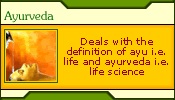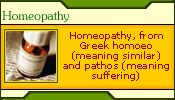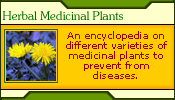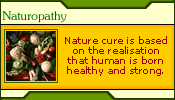|
Vitamin B12 or cobolamin, commonly known as "red vitamin"
, is the only vitamin that contains essential mineral elements.
It is essential for proper functioning of the central nervous system,
production and regeneration of red blood cells and proper utilisation
of fat, carbohydrates and protein for body building. It also improves
concentration, memory and balance. Valuable sources of this vitamin
are kidney, liver, meat, milk, eggs, bananas and peanuts. Its deficiency
can lead to certain types of anaemia , poor appetite and loss of
energy and mental disorders.
The recommended daily allowance of this vitamin is 3 mcg. Taken
in large therapeutic doses from 50 to 100 mcg., it is beneficial
in the treatment of lack of concentration, fatigue, depression,
insomnia and poor memory.
Vitamin B 12, known as cyanocobalamin, cobolamin and also known
as the energy vitamin is a very widely researched vitamin, and used
in supplementation to a very large degree.
This complex structured compound with its cobalt content forms part
of the B group vitamins, and the body needs very small amounts.
Vitamin B12 - cyanocobamin - is required
for
Cobolamin is needed in the manufacture of red blood cells and the
maintenance of red blood cells and it stimulates appetite, promotes
growth and release energy. It is often used with older people to
give an energy boost, assist in preventing mental deterioration
and helps with speeding up thought processes. Some people are also
of the opinion that it helps with clearing up infections and provide
protection against allergies and cancer. This vitamin is also used
in the metabolism of fats, proteins and carbohydrates.
Deficiency of vitamin B12
Some symptoms of a deficiency will include a sore tongue, weakness,
fatigue, and weight loss, back pain and apathy. It might further
result in loss of balance, decreased reflexes, tingling of the fingers,
ringing in the ears etc.
A deficiency may also result in the raising of the level of homocysteine
in the blood - which in high doses can be toxic to the brain, which
may be involved in Alzheimer disease. Severe deficiency may result
in pernicious anemia also called Addisonian pernicious anemia.
Another problem that appears in deficiency is the eroding of the
myelin sheath - the fatty sheath of tissue, which insulates the
nerve fibers in your body.
Dosage
The dosage underneath is the Recommended Dietary Allowance (RDA),
but be aware that this dosage is the minimum that you require per
day, to ward off serious deficiency of this particular nutrient.
In the therapeutic use of this nutrient, the dosage is usually increased
considerably, but the toxicity level must be kept in mind.
Male and female 3 mcg per day.
Toxicity and symptoms of high intake
Toxicity not established but people taking vitamin B12 injections
may experience skin problems if in large excess, but will normalize
once the injections are stopped.
Best used with
Iron, calcium, sodium, potassium as well as vitamin C are good
in nutritional synergy.
When more may be required
People on strict vegan and macrobiotic diets are often deficient
on Vitamin B12.
Some people suffer from a potentially serious problem, causing
the vitamin not to be absorbed in the intestinal tract, which can
lead to pernicious (destructive) anemia.
Anybody consuming alcohol should look at their B12 levels or if
you take laxatives or antacids regularly.
Older people could also benefit from this vitamin as the intestinal
situation changes as you age, and many people older than sixty have
difficulty extracting the vitamin from ingested food since the correct
stomach acids are not present.
Enemy of vitamin B12
Excessive alcohol can impair the absorption of this vitamin.
Other interesting points
Vitamin B12 can not be manufactured by any plants, and therefore
is only found in animal products - therefore a deficiency may happens
to people on a strict vegan diet.
Unlike other water-soluble vitamins, B12 needs some 3 hours to
be absorbed where other B vitamins are absorbed nearly immediately.
Food sources of vitamin B12
Vitamin B12 is present in liver, organ meat, muscle meat, shellfish,
eggs, cheese, fish, and can be manufactured in the body. Although
milk contains B12, processing of milk may lead to destruction of
the vitamin.
|


















